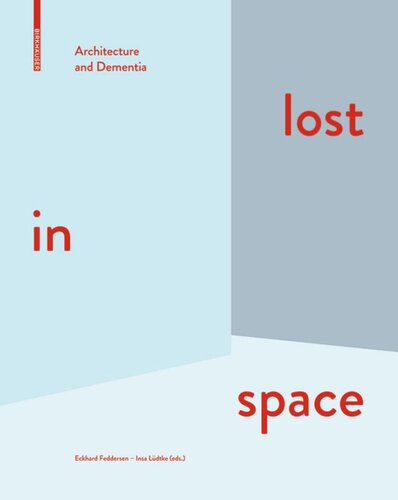

Most ebook files are in PDF format, so you can easily read them using various software such as Foxit Reader or directly on the Google Chrome browser.
Some ebook files are released by publishers in other formats such as .awz, .mobi, .epub, .fb2, etc. You may need to install specific software to read these formats on mobile/PC, such as Calibre.
Please read the tutorial at this link: https://ebookbell.com/faq
We offer FREE conversion to the popular formats you request; however, this may take some time. Therefore, right after payment, please email us, and we will try to provide the service as quickly as possible.
For some exceptional file formats or broken links (if any), please refrain from opening any disputes. Instead, email us first, and we will try to assist within a maximum of 6 hours.
EbookBell Team

4.7
106 reviewsArchitecture faces a new challenge
Dementia presents immense challenges – both for individuals as well as for society as a whole. More than 35 million people all over the world currently live with dementia, a number that is expected to double by 2050. This also has implications for architecture and urban planning because dementia often affects people’s sense of orientation and their ability to perceive space. How can homes, apartments, public buildings, outdoor spaces, neighbourhoods and cities, as well as environments and infrastructure, be designed to meet the needs of people with dementia as well as those of their caregivers? And can a consideration of the problems of dementia lead to a better understanding of space that can improve architecture and the built environment for us all?
This book addresses these and other questions in a series of professional essays that examine the specific requirements for different disciplines. In addition, international case study projects illustrate the breadth of current actual solutions. The book is intended as a guide for all those involved in the design and planning process – architects, interior designers, engineers, town planners, local authorities and clients – and as a reader for the users themselves: for people with dementia, their family and friends, and all those in their social environment.